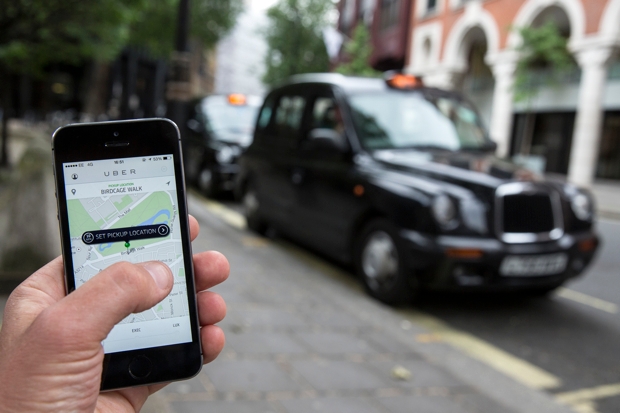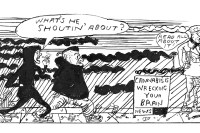The offensives against Uber are coming thick and fast. In October, a UK court ruled against the ride-sharing giant in favour of two drivers demanding minimum wages and vacation pay, even though Uber is a platform, not an employer. At the moment, the company is on trial in the EU, where judges are trying to determine what it actually is after European lawmakers (primarily in France) dragged it to court. And on Monday, Uber lost a case in Quebec on whether its drivers were employees or contractors.
Last week, it emerged that the fight is still raging in the US too, where Uber has just settled a lawsuit for $20 million over claims it inflated estimates of how much prospective drivers could earn if they signed up and misled them about the cost of car financing deals. The Federal Trade Commission argued Uber made ‘false, misleading, or unsubstantiated claims regarding driver earnings and its Vehicle Solutions Program’. Uber advertised that drivers could earn between $16 and $29 an hour depending on the city, whereas in some cases only around 10 percent of drivers were actually earning that amount. Rather than go to court this time, Uber settled, and though the company did not admit the allegations, it did say it had made improvements to the driver experience.
First, let me say that I believe comprehensive and accurate information is vital for any job agreement. The internet has levelled countless playing fields by providing free access to information that used to be guarded jealously, and that’s a philosophy all tech companies should be championing. Gig economy platforms work through information sharing – users get detailed reviews about their providers, and providers can decide which platform best suits their needs. If a company like Uber withholds or distorts information, it damages the trust for the whole industry.
But when you look of the actual accusations Uber faced, you’ll find they could be levelled at practically any company that deals with casual workers. Temping agencies, tutoring firms, talent scouts representing actors and models – they all make bold claims which look rather less impressive once you’ve signed up. When I was a student, I enrolled at five different tutoring agencies, each promising me hours of work every week for temptingly high rates. I hardly got a single job – and that was after paying for my own DBS check each time (around £50). I’ve had actor friends urged to spend a small fortune on headshots and portfolios just to get on the books of agents who never even bother to get them an audition. That’s to say nothing of advertisements for expensive courses that seductively promise a flood of enticing job prospects, if you only pay the enrolment fee.
Uber said if you had a car and wanted to drive, they’d support you. The amount a driver could potentially earn differs from the amount an average drivers earns, and they should have been clearer about that, but that’s an exaggeration committed by every piece of advertising ever written.
Zero-hours contracts are becoming more common in all industries – from entertainment and media through to fast-food and warehouse work. They often make certain requirements of workers (unpaid pre-work briefings, safety checks, mandatory uniform or equipment costs) that can seem unfair. And it was only in 2015 that the UK banned exclusivity clauses that made workers commit to being available at all times while refusing to promise them any work. Maybe we should be having a national – and international – conversation about the changing face of labour, but that’s not what’s happening. Instead, we’re focussing all our outrage on Uber, which had the temerity to offer work far more lucrative, flexible and reliable than the average temping agency.
The fact is, we have singled out Uber and the taxi market while conveniently ignoring the same behaviour in virtually every other industry. Maybe it’s because the taxi lobby screams louder than anyone else when their cushy monopoly gets threatened, or maybe it’s just that Uber cars are more visible than tutors and warehouse workers and waiters. But whatever the reason, the double standards have to end. Uber is under attack, and anyone who believes in fighting hypocrisy should be out to defend it.
Rachel Cunliffe is the deputy editor of Reaction






Comments